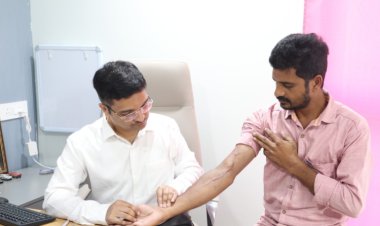CORONA OUTBREAK AND CARDIAC CARE

The ongoing CORONA-outbreak [due to COVID 19 viral infection] is a health emergency of utmost importance to both those without heart disease and with heart disease. It is reassuring to know that as many as 80% of those affected with this dreaded infection are likely to recover fully when it affects young and otherwise healthy individuals with no associated diseases like Diabetes, heart or lung disease or cancer.The older age population (more than 65 years) is particularly at risk of serious complications. The average case-fatality rate [ Proportion of deaths from a certain disease compared to the total number of people diagnosed with the disease for a certain period.] from COVID-19 is 2.3% from the recent Chinese observation in general population. Those who have hypertension are at 3 times more likely to die than who do not have it. So also, those with heart disease the chance of death are 5 times higher compared to those without any heart disease. Like SARS, MERS and influenza several cardiac ill-effects are expected in COVID-19 infection. An analysis of the recent outbreak in China suggested that among those hospitalized 16.7% developed arrhythmias and 7% had cardiac injury. Acute heart failure, myocardial infarction, myocarditis and cardiac arrest can be precipitated in the too sick patients.
How to avoid ill-effects on heart?
- The patients with heart disease should be more alert and try their best to protect getting infected. Social-distancing, regular handwashing and boosting one’s own immunity are the 3 pillars of protection for the cardiac patients.Adequate sleep, healthy food and avoiding stress are important to boost the immunity.
- Not visiting the hospital/clinics unless for compelling reasons is of prime importance until the situation normalizes. Telephonic or web-based consultations are better where feasible.
- You have to under-stand and co-operate with your cardiologist if he recommends deferring any elective cardiac procedure by a few weeks of months. WHO and CDC have suggested protocols for management of important cardiac emergencies which will be followed by your cardiologist and they are specific to the ongoing viral outbreak. A few of their management plans may be somewhat different than what you expect in normal situations. You can always discuss the details with your treating cardiologist.
- If it cannot be avoided visit only reputed centers who are likely to use adequate personal protection equipment(mask and gloves) for staff and the patients, maintain their premises clean and have hand –cleaning protocols.
- Your hospital is expected to quickly decide if your symptoms are related or not related to the viral out-break.
- Preventive vaccines are not yet available for COVID-19. But precautionary vaccine administration against influenza and pneumococcal is desirable.

Giving his note on the occasion, Dr. AN Patnaik, Senior Consultant Cardiologist, STAR Hospitals, Said, “In these few weeks there are suggestions to avoid ibuprofen like drugs and some anti-hypertensive drugs [ACE-inhibitors and ARBs]. However, the professional associations re-assured that we must continue the proven existing BP medications considering the current information. Regarding management of heart attacks, the present advice is to avoid invasive therapy and elective surgeries if feasible.”
Alertness without panic is the main guiding principle for preventing and treating the cardiac problems in this new pandemic. Keep your ears, eyes and mind open to new authentic knowledge and advisories from professional bodies like American College of Cardiology, European Society of Cardiology, CSI and ICMR. Your regular Cardiologist is the best person to guide you from time to time through this crisis period.
For Further detals contact : 9000111225
Book Appointment: Dr. AN Patnaik, Senior Consultant Cardiologist, STAR Hospitals,

 Disclaimer: Welthi.com does not guarantee any specific results as a result of the procedures mentioned here, and the results may vary from person to person.
Disclaimer: Welthi.com does not guarantee any specific results as a result of the procedures mentioned here, and the results may vary from person to person.









